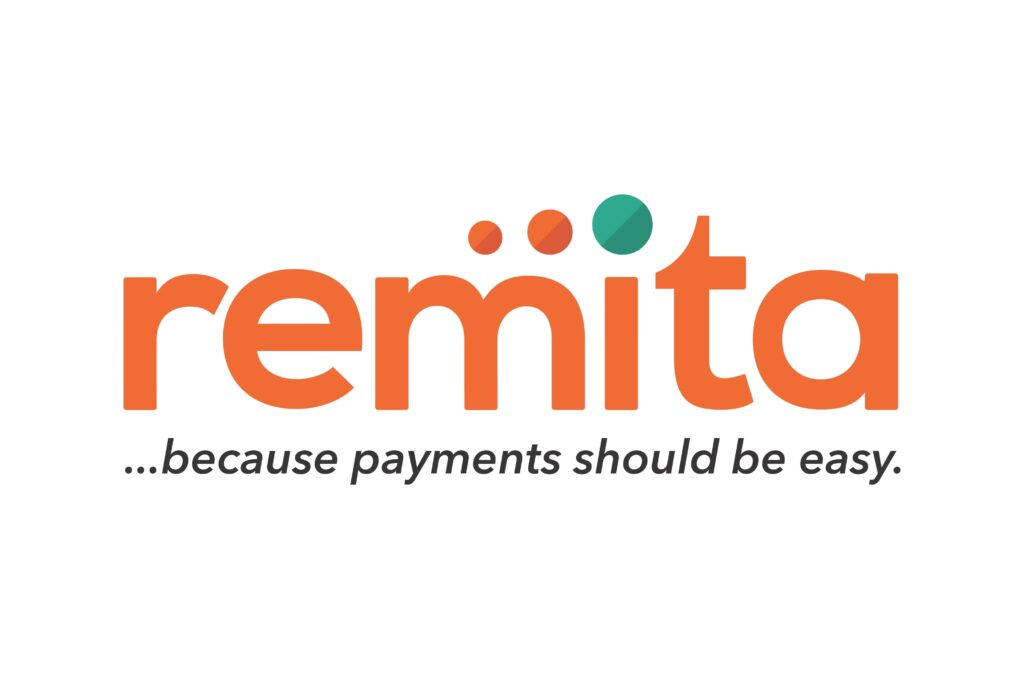Navigating Fintech’s dynamic and fiercely competitive landscape demands a solid understanding of the essentials before diving in. Having a robust plan in place is absolutely crucial. If you’ve got your idea, that’s fantastic – it’s time to kick things off!
At Remita, we’ve gathered valuable insights on crafting a successful fintech company, and we’re excited to share some essential tips to guide you on your journey to success. This article will walk you through essential aspects of building a fintech solution. So, let’s dive in and get started!
Understand Fintech Dynamics.
Before diving into the fintech world, it is crucial to grasp industry trends. A comprehensive understanding of fintech’s past, present, and future is key. This involves staying informed about past evolutions, remaining current with ongoing developments, and being aware of solutions shaping the industry’s future.
Keeping your finger on the pulse of the latest innovations is a game-changer. It not only keeps you ahead but also allows you to anticipate the needs and preferences of your target audience. Recent captivating trends encompass the shift towards digital and mobile banking solutions, the integration of artificial intelligence (AI), machine learning (ML), and blockchain technology.
Exploring how these advancements can be woven into your fintech startup idea opens doors to new opportunities and innovative solutions for existing challenges. Stay in the know; you’ll be well-equipped to chart a successful course in the dynamic fintech landscape.

Define the Challenges and Outline Your Strategy.

Building a thriving fintech company begins with a crucial step: identifying the problems you aim to solve and outlining your strategic approach to solving them.
Dive into comprehensive market research to unearth the pain points and challenges faced by customers in the financial industry. Whether streamlining processes, addressing high fees, enhancing transparency, or tackling other issues, pinpointing these challenges will guide your fintech solution.
Crafting a compelling Unique Selling Proposition (USP) is paramount. What distinguishes your fintech solution from existing competitors? How will your innovation address these problems in a unique way? This is where your creative and innovative thinking takes centre stage. Explore different approaches, technologies, and business models to tackle these challenges effectively.
As you define your solution, always keep your target audience in mind. How will your fintech solution directly benefit them? In what ways will it enhance their financial well-being?
Identifying the problems you aim to solve and mapping out your strategy form a solid foundation for your fintech business plan. This clarity will serve as a guiding force throughout your development process.
Know Your Niche
In the expansive landscape of the fintech industry, where numerous players thrive, carving out a distinctive space is not just beneficial – it’s essential. Pinpointing a unique niche becomes a strategic imperative to stand out from the competition.
Identifying your niche begins with deeply understanding your target audience and their specific needs. Whether you’re catering to individuals, small businesses, or a particular industry, tailoring your fintech solution to address their requirements requires a comprehensive grasp of their pain points and challenges.
Conducting thorough market research is equally vital. You can uncover gaps or underserved areas by analyzing the market and studying competitors. This insightful approach identifies opportunities for differentiation and positions your fintech company to meet unmet demands effectively.
Crucially, finding your niche doesn’t imply overly narrowing your focus. It’s about striking a balance – serving a specific audience while maintaining scalability and growth potential. This delicate equilibrium ensures that your fintech venture is distinctive and poised for sustainable expansion in the dynamic market.
Understand and Adhere to Legal and Regulatory Guidelines in Your Industry.
Legal and regulatory adherence is not just crucial but paramount, particularly in the fintech industry. Non-compliance can lead to substantial fines, damage to reputation, and even the suspension of operations. Therefore, a comprehensive understanding and strict adherence to your jurisdiction’s legal and regulatory guidelines are essential, and ignorance is not an acceptable excuse.
To navigate this complex landscape, it’s imperative to determine the specific regulations governing your fintech sector, whether it’s payment services, lending, or cryptocurrency. Seeking guidance from legal experts or fintech-specialized consultants can be invaluable in ensuring compliance and avoiding potential pitfalls.
Given the sensitivity of financial information in fintech, understanding and adhering to data protection laws is of utmost importance. Ensure your solution aligns with the General Data Protection Regulation (GDPR) and other pertinent data protection laws to safeguard customer privacy and maintain trust.
Additionally, familiarize yourself with regulations related to anti-money laundering (AML) and know your customer (KYC) requirements. Implementing robust AML and KYC processes safeguards your startup from fraudulent activities and instils customer confidence, ultimately contributing to increased profits. Staying vigilant on the legal and regulatory front is not just a necessity; it’s a strategic imperative for the success and sustainability of your fintech venture.
Make Informed Decisions on Fintech Technology Choices.
Navigating the myriad technological options in the rapidly advancing landscape can indeed be overwhelming for your fintech startup. However, investing time in thorough research and evaluation is key to making informed decisions aligned with your short-term and long-term goals.
When considering technology options, prioritize scalability and flexibility. Ensure that the chosen technology can grow and adapt alongside the evolution of your fintech solution. Security and compliance are non-negotiables, given the sensitive nature of financial information. Opt for technologies adhering to the highest security standards, offering encryption, multi-factor authentication, and consistent security updates.
A paramount factor is user experience and ease of use. In the fintech realm, where seamless and intuitive experiences are expected, choosing technology that excels in these aspects is essential.
Cost efficiency is another critical consideration, especially for a startup. Carefully select technologies and tools that align with your budget constraints while delivering the necessary functionality. By meticulously weighing these factors, you pave the way for a tech foundation that propels your fintech startup toward success.

Begin with a Lean Approach: Hire Only Essential Roles Initially.
Be mindful of your finances by identifying the key expertise for the initial stages of your startup, pinpoint the crucial areas of expertise. For instance, you might need a talented developer to build your platform, a UX/UI designer to craft a user-friendly interface, and a marketing specialist to help you connect with your target audience. These roles are pivotal for launching your fintech solution, and you can always consider expanding your team as your startup gains momentum.
Explore Outsourcing Options: To manage costs effectively, think about outsourcing specific tasks to freelancers or forming partnerships with other startups in the industry. This collaborative approach can add flexibility to your resources while fostering a friendly and supportive startup environment.
Build on existing Infrastructure for Development Success
Optimizing your development process and conserving valuable time and resources involves leveraging existing infrastructure.Rather than reinventing the wheel, seek out established technologies, platforms, and services that can serve as a solid foundation for your solution.
A powerful strategy for building on existing infrastructure is to incorporate Application Programming Interfaces (APIs), such as those offered by Remita. Our comprehensive suite of APIs enables seamless access and integration with existing banking systems, payment gateways, and various financial services. This approach significantly reduces the need to create everything from the ground up, expediting your development timeline and ensuring alignment with industry standards.
Collaborating and forming partnerships with established companies like Remita opens doors to invaluable infrastructure, expertise, security measures, and regulatory compliance frameworks. Such partnerships not only enhance the credibility and trustworthiness of your fintech startup but also make it more appealing to potential investors and customers.

Test Your Idea
Now that you have a comprehensive understanding of the fintech industry and a clear direction, it’s time to validate your ideas. Testing is a pivotal step in the development process, allowing you to gather valuable feedback and insights before making significant investments in your fintech solution.
Creating a Minimum Viable Product (MVP) is key to showcasing your idea. As the name implies, it does not have to be a fully functional solution, but it should give users a clear idea of what your fintech solution aims to achieve. Share this prototype with potential users, industry experts, and investors to collect their feedback and insights.
User feedback is particularly crucial at this stage for identifying usability issues and areas for improvement, as well as validating your assumptions. Conduct user interviews, surveys, or usability tests to gain valuable insights that will help refine your idea and make informed decisions.
In addition to user feedback, seek insights from industry experts and investors to identify potential gaps or challenges in your concept. Once feedback is gathered, make the necessary adjustments and test your idea iteratively. Refine the solution until it aligns seamlessly with the needs of your target audience and fulfills your business goals.
Testing your idea in this manner helps you proactively identify and address potential flaws or challenges early on, ultimately saving time and resources in the long run.

Conclusion
Congratulations on reaching the end of this guide! You’ve now got some valuable insights to fuel your journey in building a stellar fintech solution. While the road ahead might be challenging, these tips serve as your compass in navigating the intricate landscape of fintech development.
As you embark on your fintech journey, remember to stay ahead of the game, constantly meet the evolving needs of your customers, and carve out a unique space for your startup. And hey, speaking of unique spaces, consider how Remita’s suite of APIs and our expertise could supercharge your venture. We’re here to support you at every step, making your journey smoother and more successful.
Wishing you the best of luck on your exciting fintech adventure!

